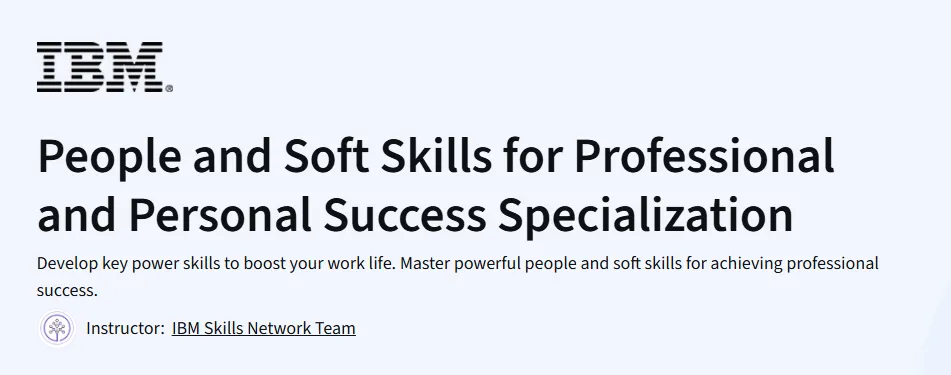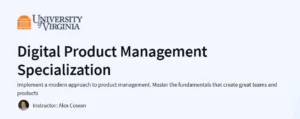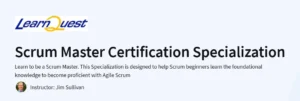What will you learn in People and Soft Skills for Professional and Personal Success Specialization Course
Strengthen interpersonal and professional communication.
Develop emotional intelligence, adaptability, and collaboration.
Manage workplace conflict, feedback, and team dynamics effectively.
Enhance problem-solving, listening, and leadership presence.
Program Overview
Course 1: Interpersonal Communication for Engineering Leaders
⏱️ 2 weeks
Topics: Active listening, feedback, tone, and clarity
Hands-on: Practice scenarios for professional conversations
Course 2: Emotional Intelligence: Cultivating Immensely Human Interactions
⏱️ 2 weeks
Topics: Self-awareness, empathy, managing reactions
Hands-on: Journaling, reflection, and real-life roleplay tasks
Course 3: Teamwork and Collaboration
⏱️ 2 weeks
Topics: Roles in teams, trust-building, inclusive practices
Hands-on: Team dynamics analysis and group project simulation
Course 4: Conflict Resolution Skills
⏱️ 2 weeks
Topics: Identifying conflict styles, de-escalation, mediation
Hands-on: Conflict mapping and resolution planning
Course 5: Critical Thinking and Problem Solving
⏱️ 2 weeks
Topics: Logical reasoning, cognitive biases, decision-making
Hands-on: Case-based problem-solving activities
Course 6: Leadership Through Social Influence
⏱️ 2 weeks
Topics: Influence without authority, negotiation, persuasion
Hands-on: Storytelling and influence mapping tasks
Get certificate
Job Outlook
Soft skills are ranked among the top skills employers seek, especially in hybrid or leadership roles.
Growth in roles requiring communication, problem-solving, and leadership continues across industries.
Essential for career progression, management, and people-facing roles.
Relevant in consulting, HR, sales, tech, healthcare, and startups.
Specification: People and Soft Skills for Professional and Personal Success Specialization
|
FAQs
- The course offers techniques for active listening and effective verbal communication suitable for introverts.
- It teaches strategies for participating in meetings, presentations, and group projects confidently.
- Emphasis on self-awareness helps learners adapt their communication style.
- Role-playing exercises and scenarios are included to practice without real-world pressure.
- Skills learned can improve both personal and professional relationships.
- Modules cover conflict resolution, motivation, and influencing others positively.
- Learners gain insight into team dynamics and how to foster collaboration.
- It introduces strategies for managing both upward and downward communication.
- Concepts can be applied to small teams or group projects immediately.
- Completion can support career growth toward supervisory or managerial roles.
- Course teaches negotiation, networking, and client communication applicable in freelance or entrepreneurial settings.
- Self-management and productivity modules help manage projects independently.
- Emphasis on adaptability and resilience supports small business or startup challenges.
- Skills like empathy and relationship-building enhance client trust and partnerships.
- Practical examples extend beyond office environments to diverse professional contexts.
- Modules on emotional intelligence improve personal relationships.
- Self-awareness exercises help manage stress and improve decision-making.
- Communication skills can strengthen family and social interactions.
- Conflict resolution and negotiation techniques apply to everyday situations.
- Time management and goal-setting tools enhance overall life organization.
- Active participation in exercises is crucial to internalize soft skills.
- Applying techniques in daily life accelerates improvement.
- Role-playing and reflection assignments help bridge theory and practice.
- Tracking progress and receiving feedback increases skill retention.
- Continuous application after the course ensures long-term benefits.





